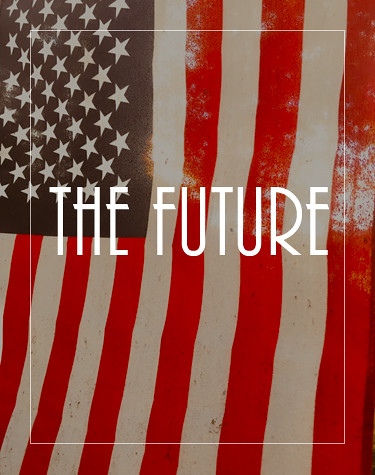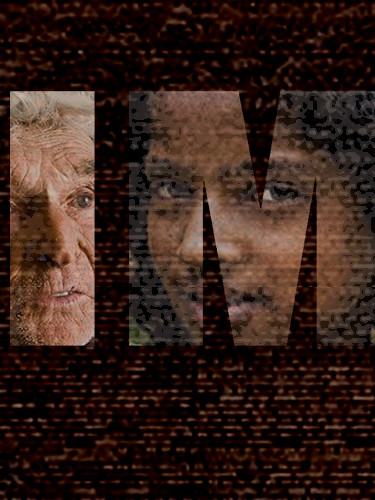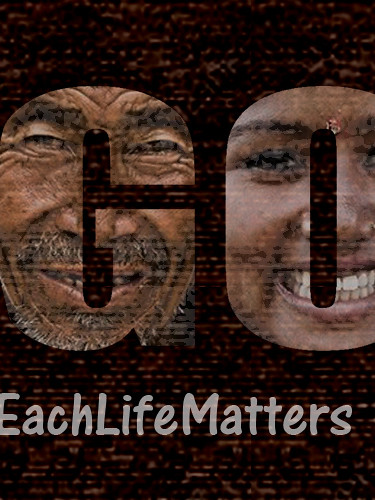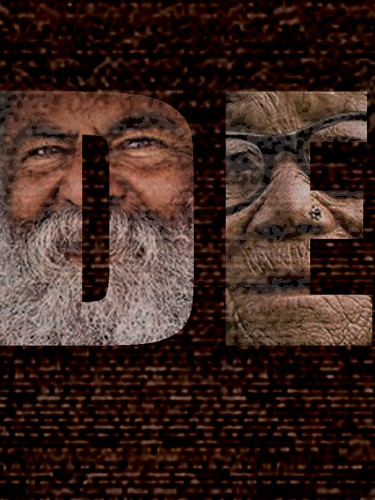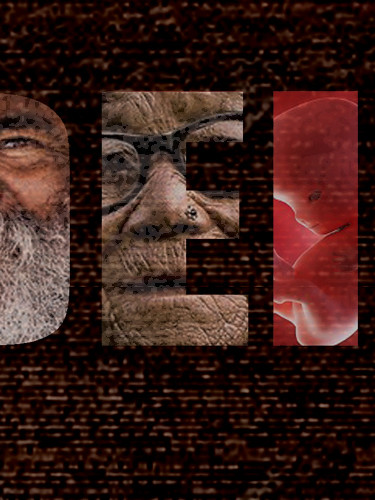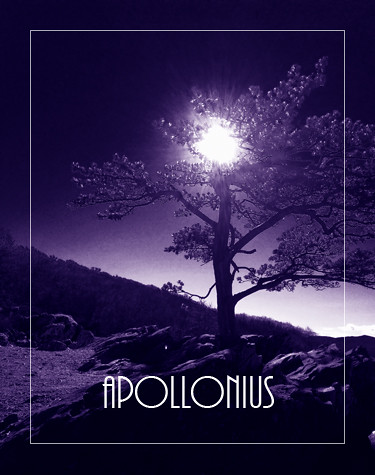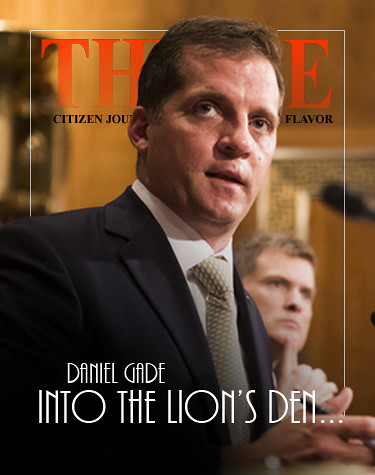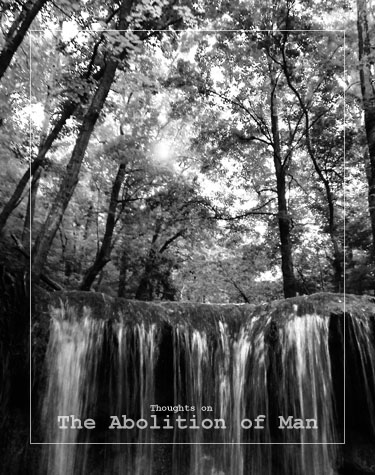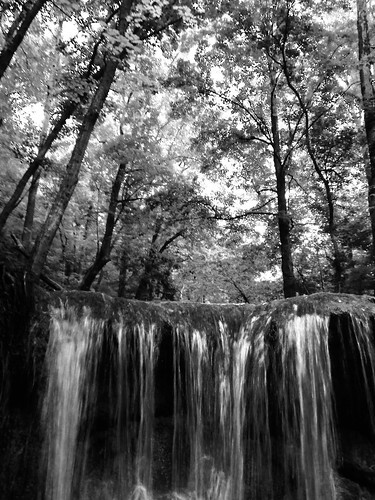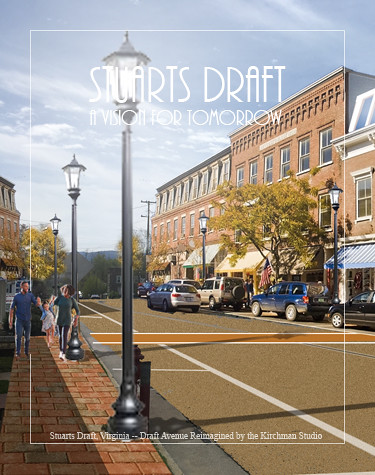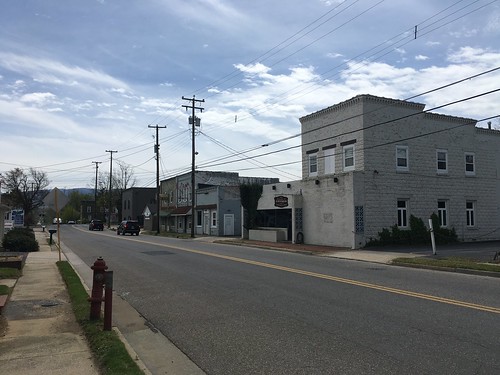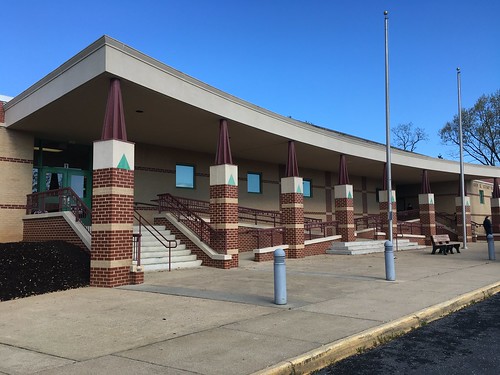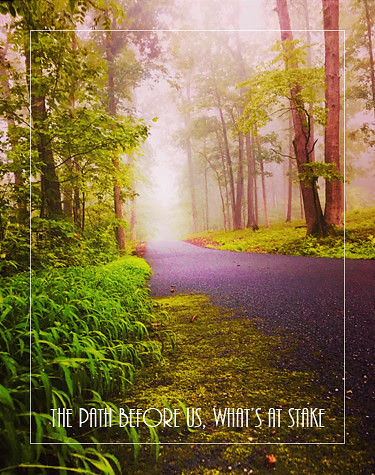 Volume XIX, Issue IV: The Path Before Us, What's at Stake
The Path Before Us, What's at Stake
Volume XIX, Issue IV: The Path Before Us, What's at Stake
The Path Before Us, What's at Stake
[click to read]
In a few months, Americans will not only choose a President, they will choose the course for this nation’s future. To say that this election is important would be a huge understatement. In this issue I lay out a few of the things that are at stake. Yet many people will not vote. They will say things like
“my vote doesn’t matter,” but it does! They may even spiritualize their lack of participation saying
“God will raise up the leaders.” Let me tell you though –
He HAS! In a Representative Republic they are US!
Since in a republic such as ours, the government actually begins with the
SELECTION of who is to represent us, we have been vested with a position in authority.
WE choose the representatives and the President. We are responsible for that choice. It is a sacred duty and a sacred trust.
NOT to vote is to vote – to throw away our responsibility as empowered citizens. God
HAS raised up leaders – it is
WE who must lead in this crucial hour. If we do not, it shall be on our hands what becomes of our nation.
Dr. James Dobson writes a letter about what’s at stake in the coming moths as America’s Presidential election approaches. Please hear this great man’s plea and
VOTE! The stakes have never been higher!
Dear Friends,
As I write this newsletter, voters across this nation are only a few short months away from the next general election. What an ominous time this is for our 244-year-old republic. Its future hangs in the balance. The choices we make on November 3rd will send this nation down one of two dramatically different paths. The wrong decision will be catastrophic. I agree with former Speaker of the House,
Newt Gingrich, who said recently that the next election will be “the most important since 1860.” He also warned that if we appease or ignore the violence and anarchy occurring in the streets, it might be the end of civilization as we have known it. Those are sobering words coming from a man who has stood at the pinnacle of national power.
Mr. Gingrich referred to the significance of 1860 because that was the year Abraham Lincoln was elected president. I'm sure the Speaker would agree that the following election of 1864 was also critical to the future of the nation. Lincoln and his opponent, Maj. Gen.
George McClellan, were in a hotly contested campaign for the White House that could have gone either way. The
"war between the states," as it was called, had been raging for three ghastly years, and the entire nation was staggered by reports from the bloody battlefield.
Lincoln was running for a second term, and he campaigned on the promise of finishing the war and preserving the Union. These were momentous times for the young nation. During the first week of January 1863, the President signed the Emancipation Proclamation, freeing the slaves.
Democrats and their presidential candidate, Maj. Gen. McClellan, initially campaigned on a
“peace platform,” pledging to end the war and send soldiers home. As the election approached, he talked more about negotiating to let the South establish a separate government whose cornerstone would be slavery. If McClellan had been elected, there would have been no foreseeable end to the inherent evil of buying and selling human beings and treating them like cattle. Thus, the Civil War was a struggle for the soul of America.
The summer before the election, the war was going badly for the Union. Lincoln, in fact, was convinced he was going to lose the election. He wrote the following memorandum on August 23, 1864, asking his Cabinet to accept the grim prospects for his re-election. These are his words:
This morning, as for some days past, it seems exceedingly probable that this Administration will not be re-elected. Then it will be my duty to so cooperate with the President-elect as to save the Union between the election and the inauguration; as he will have secured his election on such grounds that I cannot possibly save it afterwards.4
No wonder Lincoln dealt at times with depression. Clearly, the Union was a hair's breadth away from losing the war. But then, the tide began to turn. One historian wrote,
"The political landscape shifted dramatically when Gen. William T. Sherman took Atlanta in early September. This major military shift, coupled with the severe internal strife within the Democratic Party, solidified Lincoln's chance at victory.”
As you know, Abraham Lincoln and the Republicans won the election of 1864 in a landslide. McClellan was defeated by more than 500,000 popular votes and 191 electoral votes. An estimated 78 percent of Union soldiers cast their ballots in favor of Lincoln. McClellan took just three states: Kentucky, Delaware, and his home state of New Jersey. Less than two months after Lincoln's inauguration, he was assassinated by John Wilkes Booth. He is said to have been the
“last casualty” of the Civil War.
Why have I recounted our Civil War history and the election of 1864 at this time in our history? It is for two reasons. The first is to consider some striking similarities between then and now. Our nation is divided like no time since the Civil War. Lawlessness and anarchy stalk the cities as angry mobs riot, burn, loot, rob, and kill innocent bystanders. Cultural monuments are being destroyed. Scores of people have been shot. Our courageous police officers are being brutally attacked by the same people they have vowed to protect. A man and his son stopped to ask for directions, and he was gunned down on the spot. A one-year-old baby was shot in the stomach while he sat in his stroller. The child died at the hospital.
What began as a justified and lawful protest in response to
George Floyd's senseless murder by a rogue police officer has morphed into violence for the sake of violence. Hatred flows in the streets, including vitriol directed at the President of the United States or anyone who dares to support him or his policies. Constitutional rights to freedom of speech and religious liberty are being trampled. There is also widespread belief that violence and anarchy are being organized and funded by powerful forces that are maneuvering America toward a socialist dictatorship. There is always a kingmaker behind such lawlessness. Most disturbing is open talk of another civil war. It is troubling to even utter those words. The last time Americans faced off against each other, 600,000 soldiers died. May God forbid it from happening again.
During the revolution of the 1960s, I recall a ubiquitous bumper sticker that read,
"What if they gave a war and nobody came?" It was a catchy phrase that made sense to those who opposed the Vietnam War. But my reaction to it then and now is
"What if they gave a war and only one side came?" That question keeps me awake at night. There are multiple millions of passive Americans out there today, many of them Christians, who are clueless about what is happening to their homeland. They are losing something precious and irreplaceable. Do they not understand that their children and those who are yet to be born will live in tyranny if we fail them on our watch? Countless young men and women have laid down their lives on battlefields around the world to protect liberty and our way of life. Now, what they purchased for us with their blood is slipping away. Disengaged people won't lift a finger to preserve this great land. They won't take even a few minutes to go to their polling places to vote. There are also thousands of pastors who won't allow voting registration tables in the lobbies of their churches. Don't they know or care that America is on the ropes? Hordes of angry anarchists are salivating over the next election, hoping to push America over a cliff. If they succeed, as Newt Gingrich said, Western civilization will never recover. Is there anyone left who believes some things are worth dying for? Aren't there patriots out there such as
Patrick Henry who said in defiance of British tyranny,
“Give me liberty or give me death!”? That was the spirit during his day. The Declaration of Independence closed with these words endorsed by the signers, "We pledge to each other our lives, our fortunes, and our sacred honor." They knew they would be hanged if they lost the war. Why did they do it? Because they loved their country enough to die for it.
How I pray for the emergence of silent, intimidated Americans who will come out of their hiding places to let their voices be heard on Election Day 2020. There must be tens of thousands of ministers in our midst who, like the
Black Robed Regiment of the Revolutionary War, will strip off their clerical garb and fight valiantly for religious liberty. If these men and women of faith and conviction don't come to the rescue of their country, it is doomed.
During the Civil War, untold soldiers gave their lives to preserve the integrity of the United States of America and to end the tragedy of slavery. Here is the question of the hour: Are you and our brothers and sisters willing to carry the bloodstained banner around which our predecessors rallied? We will know the answer on November 3rd.
That brings us to the second reason I have addressed the Civil War and the election of 1864. It is to remind us that voting matters. Each presidential campaign has been important, but some have had jaw-dropping and nation-shaping consequences. I believe we are at such a pivotal moment now. You can be certain that America will be forever changed by the political party that gets its supporters to the polls. They will win the day—and the future.
Unfortunately, the majority of Christians have a record of not showing up on Election Day. It is unbelievably sad. As many as 75 percent of them sit on their hands, apparently assuming that their votes don't matter. They are wrong. Voting ALWAYS matters. George W. Bush won the presidency in 2000 by 537 votes in a nation of 130 million registered voters. Many down-ballot contests have been won or lost by a single vote.
I plead with you to register and vote in this presidential election. I won't try to tell you who to vote for because you can figure it out for yourselves. But I will suggest how you might evaluate the situation we face. I'll close with seven critical issues that have stunning significance for the nation. Please think hard about them, and then go to the polls.
1. The Next Generation
There is a fierce battle being waged now in the nation's classrooms for the hearts and souls of our children and grandchildren. Those of us who are passionately committed to the Judeo-Christian system of beliefs are losing our kids right before our eyes. They are being force-fed a radical curriculum that is godless, anti-American, and sexually perverse. Make no mistake, the left and secular culture are manipulating the minds of your sons and daughters every day of the year. I urge you to be extremely careful about those whom you set in power over your children. Protect them with your very lives.
2. The Sanctity of Human Life
All life is sacred and is a gift from Almighty God. But as you know, America has the blood of innocents on its hands. Since 1973, more than 60 million babies have been murdered through abortion and countless lives have ended by euthanasia. This is the most tragic holocaust in the history of the world! Some states have even passed laws allowing wounded and suffering infants to lie alone on porcelain trays after somehow surviving unsuccessful abortions. They will die without the comfort of their mothers' breasts. If that doesn't touch your heart, you are without compassion. I hope you will not cast a single vote for any politician who supports such wickedness.
3. Marriage and Family
The family is God's original building block for society. Marriage continues to serve as the foundation for every dimension of human life. Everything of value rests on it, including procreation and the care and training of children. If that ground floor is weakened or undermined, the entire superstructure of civil society will come crashing down. But listen carefully: powerful and highly funded forces, including
LGBTQ and other leftist entities, are determined to destroy the family as an institution. It is already on its knees, and its future is grim. Before you vote, find out what position the candidates have taken on this issue. Then vote accordingly.
4. Religious Liberty
The first item listed in the Bill of Rights addresses the issue of religious liberty. All the other enumerated rights flow from that fundamental freedom. That is why it is alarming to recognize that this right to worship and honor God as we choose is under vicious attack today. The courts have done the greatest damage, but now an entire sub-culture is trying to bring down the Christian faith. Whether it has invaded your private world or not, it is at your front door. It was this primary concern that led to the Declaration of Independence and the Revolutionary War in 1776. We can't compromise one jot or tittle within that fundamental right. Fight for it with every ounce of your strength and determination. Don't let the government close the doors of your church or tell you when you can sing praises to the Lord Almighty. They have a devious agenda, and it is dangerous. Be ready to go to the mat in defense of what you believe. And let this passion influence how you cast your ballot in November. Here I stand. Will you join me?
5. Capitalism v. Socialism
It is difficult to believe that for the first time in American history, our nation appears to be thinking about trading our democratic way of life for the tyranny of socialism. I can hardly catch my breath. Could we really consider abandoning the beloved system of government that was designed to be of the people, by the people, and for the people? Is it true that up to 40 percent of millennials and others are prepared to surrender their liberties in exchange for the absolute authority of the state? Democracy and capitalism have made ours the most powerful and successful nation in the history of the world. Are we really considering scuttling the system that has served us for 244 years in exchange for what some people call “free stuff?” I pray not! But that option awaits you in the polling booth.
6. The Judicial System
Given recent rulings, we know that judicial overreach has almost ruined this great nation. Justices and judges are constitutionally charged to interpret the law, not make law. But again, and again, they have overstepped their authority and brought us atrocities such as abortion on demand, same-sex marriage, and the so-called “separation of church and state,” which doesn't appear in the Constitution. Most recently, the Supreme Court handed down one of its most egregious rulings since Roe v. Wade. It is the case of Bostock v. Clayton County. This decision was not based on constitutional law but on the whims of six justices. It created a new legal definition of sex out of thin air. Lawyers tell us that this ruling will affect every dimension of culture and haunt the nation as long as it endures. Please don't vote for politicians who will expand, rather than limit, the power of the judiciary.
7. The Nation of Israel
Scripture tells that those who bless Israel will be blessed
(Genesis 12:3). Our prayer is that the next Chief Executive Officer of the U.S. will continue to promote and cultivate a vibrant bond of friendship with the nation of Israel, which is our only ally in the Middle East. Anti-Semitism and all forms of racial discrimination are inherently evil, and we condemn them categorically. We are a nation that is dedicated to
“freedom and justice for all” (The U.S. Pledge of Allegiance).
I could list dozens of other issues that should be considered as we vote on November 3rd. I will end with this final statement from
Abraham Lincoln. He said:
I am not bound to win, but I am bound to be true. I am not bound to succeed, but I am bound to live by the light that I have.”
Let us come boldly before the throne of grace and ask God for His mercy on America.
Sincerely,
Dr. James C. Dobson PhD
(click to read more)
Listen to the Message Here [click to listen]
The “Black Robed Regiment”
[click to read]
The
Black Robed Regiment was the name that the British placed on the courageous and patriotic American clergy during the Founding Era
(a backhanded reference to the black robes they wore). Significantly, the British blamed the
Black Robed Regiment for American Independence, and rightfully so, for modern historians have documented that:
There is not a right asserted in the Declaration of Independence which had not been discussed by the New England clergy before 1763.
It is strange to today’s generation to think that the rights listed in the
Declaration of Independence were nothing more than a listing of sermon topics that had been preached from the pulpit in the two decades leading up to the American Revolution, but such was the case.
But it was not just the British who saw the American pulpit as largely responsible for American independence and government, our own leaders agreed. For example,
John Adams rejoiced that
“the pulpits have thundered” and specifically identified several ministers as being among the
“characters the most conspicuous, the most ardent, and influential” in the
“awakening and a revival of American principles and feelings” that led to American independence.
(read more)
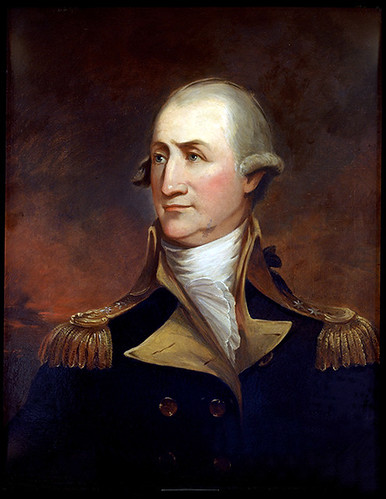 John Peter Muhlenberg was a Lutheran minister who served in the Revolutionary War. There is a legend that says he stood before his congregation and opened his ministerial robes to reveal the uniform of a Continental soldier as he resigned his pulpit to go to war. He fought in the battles of Charleston in 1776 and served all the way through the battle of Yorktown in 1781, rising to the rank of Major-General. He later served in Congress.
The Mayor Who Made a Difference
An Article for the June 1996 Deep Cove Crier
by Reverend Ed Hird, Rector,
John Peter Muhlenberg was a Lutheran minister who served in the Revolutionary War. There is a legend that says he stood before his congregation and opened his ministerial robes to reveal the uniform of a Continental soldier as he resigned his pulpit to go to war. He fought in the battles of Charleston in 1776 and served all the way through the battle of Yorktown in 1781, rising to the rank of Major-General. He later served in Congress.
The Mayor Who Made a Difference
An Article for the June 1996 Deep Cove Crier
by Reverend Ed Hird, Rector,
St. Simon’s Anglican Church, Used with his permission.
So often, Toronto functions as the city that other Canadians feel the most ambivalent about. The proverbial expression
"Can anything good come out of Nazareth?" readily comes to my mind as I think of Toronto. And yet ironically, the nickname
"Toronto The Good" points to a side of Toronto that has largely been forgotten in the Canadian amnesia about our own heritage and roots. I was talking recently to
Phyllis Beck, the Deep Cove Crier Seniors Columnist, about Toronto roots, only to discover that her daughter-in-law,
Barbara Hall, is the current Mayor of Toronto. I commented to Phyllis about the recent discovery that my Great-great-grandfather, Thomas Allen, was a senior Alderman in Toronto during a period of 19 years. When I was in Toronto a few months back, getting a first-hand glimpse of the
"Toronto Blessing", I kept driving back and forth past Allen Road. My ignorance about this road named after my Torontonian ancestor reminded me afresh of our Canadian forgetfulness about some of our own heroes.
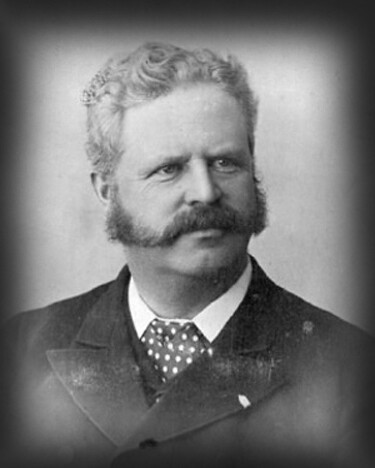 William H. Howland
O
William H. Howland
One such hero was
Mayor William Howland of Toronto, a public servant who was so dedicated to helping the disadvantaged that he gave away most of his wealth. Son of the Honorable W.P. Howland, the first Lieutenant-Governor of Ontario, William was possessed with a bubbly enthusiasm and phenomenal capacity for hard work. By the age he was 25, William was president, vice-president, or a director of more than a dozen companies in the fields of insurance and finance, electrical services, and paint manufacturing. When he became president of the Queen City Fire Insurance Company in 1871, he was the youngest insurance company president in Canada. As well, Howland was President of three influential organizations: the Toronto Board of Trade, the Dominion Board of Trade, and the Manufacturer’s Association of Ontario. Out of his love for his country, he served as Chairman of the Canada First movement, personally financing its weekly newspaper "The Nation".
At age 32, Howland was led to Christ by his priest, Dr. W.S. Rainsford of St. James Anglican Cathedral. His life-changing experience gave him a new passion for helping the poor. He became involved helping with the Hillcrest Convalescent Hospital, the YMCA, the Haven Home for Unwed Mothers, the Prisoner’s Aid Association, the Central Prison Mission School, and the Toronto General Hospital. Night after night, Howland visited the slums, going from house-to-house, and reaching out to the poor, the sick, and the alcoholic. He also purchased 50 acres to start an Industrial School in order to steer youth away from the life of crime. Other initiatives were his building an alternative school for drop-outs, and a Home for the Aged and Homeless Poor. When he began to teach an interdenominational bible study for 100 young men, his new priest J.P. Lewis objected to Howland’s involvement with non-Anglicans. Out of this rejection, he began the interdenominational Toronto Mission Union, which operated seniors’ homes, convalescent homes, and Toronto’s first-ever home nursing service.
Because of his great compassion for the poor, he was elected as Mayor of Toronto in 1885, with a strong mandate to clean up the city. Howland signaled his arrival in the mayor’s office by installing a twelve-foot banner on the wall, reading,
"Except the Lord Build the City, the Watchman Wakes but in Vain". Despite fierce opposition, Howland was so successful, that Toronto became nicknamed
"Toronto the Good". As champion of the poor, Howland and his Alliance friend, Rev. John Salmon, would tramp the lanes and alleys, feeding the poor, praying over the sick, and comforting the sad. With a population of just 104,000, Toronto had over 800 licensed and unlicensed saloons. Over half of all criminal offenses recorded in 1885 were related to drunkenness.
Howland is described in Desmond Morton’s book
"Mayor Howland: the Citizen’s Candidate" as the first reform mayor in Toronto’s history. Due to bureaucratic corruption, municipal garbage collection was all but non-existent. Even City Hall’s own garbage was rarely picked up. Rotting garbage fouled the alleyways, yards, and streets, giving Toronto a reputation for flies, stench, and disease. With no general sewage system, Toronto lived on the verge of a typhoid epidemic. Children swam in the same Toronto harbour area into which raw sewage was flowing from the ditches. Toronto’s fresh water supply was sucked through leaking and rotting wooden pipes, half buried in the sewage and sludge of the Toronto harbour.
Howland believed that we didn’t usually need more laws; we just needed to enforce the ones that already existed. He shocked the city bureaucrats by enforcing the already existing bylaw which forbid the depositing of garbage within the city limits. After he threatened to send the city commissioner to jail for breaking this bylaw, garbage miraculously began to be collected! Howland also worked hard in the construction of a trunk sewer system, to redirect the sewage away from the Toronto Harbour. He had such a dramatic impact in reducing the crime rate that other mayors began visiting Toronto, hoping to imitate Howland’s miracle.
During his re-election campaign in 1887, all the taxi cabs were paid off by Howland’s opponent so that they would refuse to take Howland’s supporters to the polling stations. Women however (2,000 widows and single women with property) had just been given the vote. So they held up their long Victorian dresses, and trucked through the snow to give Howland the moral reformer a second term. When Howland was re-elected by a landslide, over 3,000 of his supporters at the YMCA hall spontaneously burst into singing
"Praise God From Whom All Blessings Flow.".
After he unexpectedly stepped down as Mayor after two terms, Howland became the founding President of the Christian Alliance (which later took the name C&MA: Christian and Missionary Alliance). The unique interdenominational nature of the early C&MA allowed Howland to be its president, while still remaining an Anglican. When he died unexpectedly at age 49, his funeral involved Anglican, Alliance, and Presbyterian clergy. With more than a thousand mourners on foot from all social classes, it was the largest funeral procession that had ever been held in Toronto. A poem published in the Toronto Globe said of Howland:
"And not Toronto mourns alone; All Canada his fame had heard; His name is dear, a household word, And far and wide, his worth was known". May William H. Howland continue to be a living symbol of the difference that just one Canadian can make.
Reverend
Ed Hird, Rector,
St. Simon’s Anglican Church
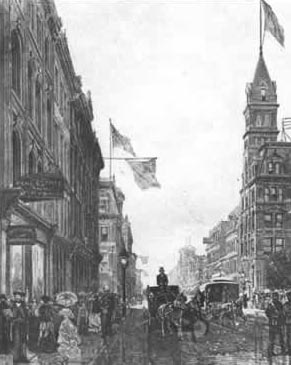 Toronto in the late Nineteenth Century.
Toronto in the late Nineteenth Century.
 Factory stacks in Waynesboro, Virginia. Photo by Bob Kirchman.
Something to Think About
Factory stacks in Waynesboro, Virginia. Photo by Bob Kirchman.
Something to Think About
[click to read]
Hate Didn’t Elect Donald Trump; People Did
By Victoria Sanders
Over the summer, my little sister had a soccer tournament at Bloomsburg University, located in central Pennsylvania. The drive there was about three hours and many of the towns we drove through shocked me. The conditions of these towns were terrible. Houses were falling apart. Bars and restaurants were boarded up. Scrap metal was thrown across front lawns. White, plastic lawn chairs were out on the drooping front porches. There were no malls. No outlets. Most of these small towns did not have a Walmart, only a dollar store and a few run down thrift stores. In almost every town, there was an abandoned factory.
My father, who was driving the car, turned to me and pointed out a Trump sign stuck in a front yard, surrounded by weeds and dead grass.
“This is Trump country, Tori,” He said.
“These people are desperate, trapped for life in these small towns with no escape. These people are the ones voting for Trump.”
My father understood Trump’s key to success, even though it would leave the media and half of America baffled and terrified on November 9th.
My father understood Trump’s key to success, even though it would leave the media and half of America baffled and terrified on November 9th. Trump’s presidency has sparked nationwide outrage, disbelief and fear.
And, while I commend the passion many of my fellow millennials feels towards minorities and the fervency they oppose the rhetoric they find dangerous, I do find many of their fears unfounded. I don’t find their fears unfounded because I negate the potency of racism. Or the potency of oppression. Or the potency of hate.
I find these fears unfounded because these people groups have an army fighting for them. This army is full of celebrities, politicians, billionaires, students, journalists and passionate activists. Trust me, minorities will be fine with an army like this defending them.
And, I would argue, that these minorities aren’t the only ones who need our help. The results of Tuesday night did not expose a red shout of racism but a red shout for help.
Journalists are now reporting that Trump won because rural America voted for him in droves. I see a lot of journalists reporting about the what, the who, and the how of this election, but not many are tackling the why. I do not at all feel qualified enough to discuss the why of this, but I don’t see anybody bringing up the astounding poverty found in rural America and that the desperation found in these areas is what prompted the rise of Donald Trump. Perhaps this will inspire more intelligent people than I to look into this more deeply.
It’s easy to point to these small, impoverished towns and name racism, the second amendment or plain stupidity as the only reasons why these people would ever vote for a man like Donald Trump. I find this to be highly intellectually dishonest, though. To write this off as simple racism is to ignore the very real and very heartbreaking struggles small town America faces.
The majority of rhetoric going around says that if you’re white, you have an inherent advantage in life. I would argue that, at least for the members of these small impoverished communities, their whiteness only harms them as it keeps their immense struggles out of the public eye.
Rural Americans suffer from a poverty rate that is 3 points higher than the poverty rate found in urban America. In Southern regions, like Appalachia, the poverty rate jumps to 8 points higher than those found in cities. One fifth of the children living in poverty live rural areas. The children in this
“forgotten fifth” are more likely to live in extreme poverty and live in poverty longer than their urban counterparts. 57% of these children are white.
Education, particularly college, is less attainable to those living in rural areas. 64% of young people in rural areas attend college, compared to the 70% of students who attend universities in metro areas. 47% of these small town students who end up attending college only go for a two-year degree, while only 38% of urban students attain only a two-year degree. And, when these students do fight the odds and attend a university, they don’t come back to their place of origin due to the lack of jobs.
Rural Americans also suffer from a lower life expectancy. Those living in Appalachia regions, in particular, have a life expectancy that is declining at a rate that is worse than anywhere else in the USA. Those living in rural America are more likely to suffer from depression. Alcohol and substance abuse is prevalent in rural America and 25.9% of those entering rehab for addictions are between the ages of 12-17. The chronic pain that comes from vocations such as mining has caused the heroin epidemic sweeping small towns.
(read more)
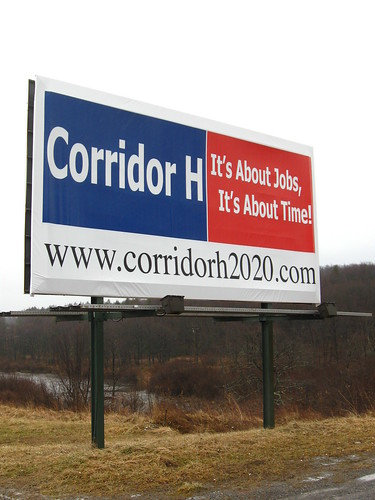 Corridor H, U. S. 48 through the mountains of West Virginia, promises to bring commerce and jobs to the region. Photo by Bob Kirchman.
Corridor H, U. S. 48 through the mountains of West Virginia, promises to bring commerce and jobs to the region. Photo by Bob Kirchman.
 A billboard between the towns of Thomas and Davis in West Virginia asks: "Got Faith?" Photo by Bob Kirchman.
Designing the Unbuilt World of Tomorrow
In Our Next Issue, September 2, 2020
Thus saith the Lord of hosts, the God of Israel, unto all that are carried away captives, whom I have caused to be carried away from Jerusalem unto Babylon; Build ye houses, and dwell in them; and plant gardens, and eat the fruit of them; Take ye wives, and beget sons and daughters; and take wives for your sons, and give your daughters to husbands, that they may bear sons and daughters; that ye may be increased there, and not diminished. And seek the peace of the city whither I have caused you to be carried away captives, and pray unto the Lord for it: for in the peace thereof shall ye have peace.”
A billboard between the towns of Thomas and Davis in West Virginia asks: "Got Faith?" Photo by Bob Kirchman.
Designing the Unbuilt World of Tomorrow
In Our Next Issue, September 2, 2020
Thus saith the Lord of hosts, the God of Israel, unto all that are carried away captives, whom I have caused to be carried away from Jerusalem unto Babylon; Build ye houses, and dwell in them; and plant gardens, and eat the fruit of them; Take ye wives, and beget sons and daughters; and take wives for your sons, and give your daughters to husbands, that they may bear sons and daughters; that ye may be increased there, and not diminished. And seek the peace of the city whither I have caused you to be carried away captives, and pray unto the Lord for it: for in the peace thereof shall ye have peace.” – Jeremiah 29:4-7
In the next issue we will take a break from current events to look at how our studio has attempted to live out this scripture during these unusual times. Look for it
September 2nd.



